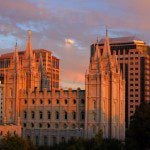The United Church of Christ (UCC) stands perhaps in the most evidently liberal position on this issue. In 2005, the UCC resolved as a church to support the legalization of same-sex marriage. Although this position seems simple, the resolution remains complicated by a few things. First, the loose governance of the UCC makes a resolution of support difficult to identify or specify across congregations. Further, as with the ECUSA, the UCC resolution specifically advocates the legalization of civil marriage for gay and lesbian persons; it does not clarify the relationship between UCC ceremonies of marriage and civil arrangements. Arguably, a church could support a change to civil law without endorsing the same change in its own understanding of marriage, as the Episcopal Church has been shown to have done.
Clearly, the question of same-sex marriage is a complicated one that many mainline Protestants and Protestant churches are struggling to answer carefully, faithfully, and compassionately. It should be noted, though, that the issue of same-sex marriage isn't controversial across Christendom. Other reformed churches like the Disciples of Christ, the Reformed Church of America and the Christian Reformed Church unambigiously oppose same-sex marriage. Furthermore, even the several denominations show little uniformity. For example, the Evangelical Lutheran Church in America and the Presbyterian Church USA, whose positions have been described above, by no means represent every Lutheran or Presbyterian tradition in this country. Missouri Synod Lutherans and members of the Presbyterian Church of America, for example, take a more traditional and straightforward position, similar to that of the aforementioned Baptists. In short, as has often been the case in the history of Western Christianity, consensus is hard to come by on this issue. In an already diverse and too often divided body of Protestant believers, the question of same-sex marriage threatens further to complicate our affiliations and to fragment our identities.




